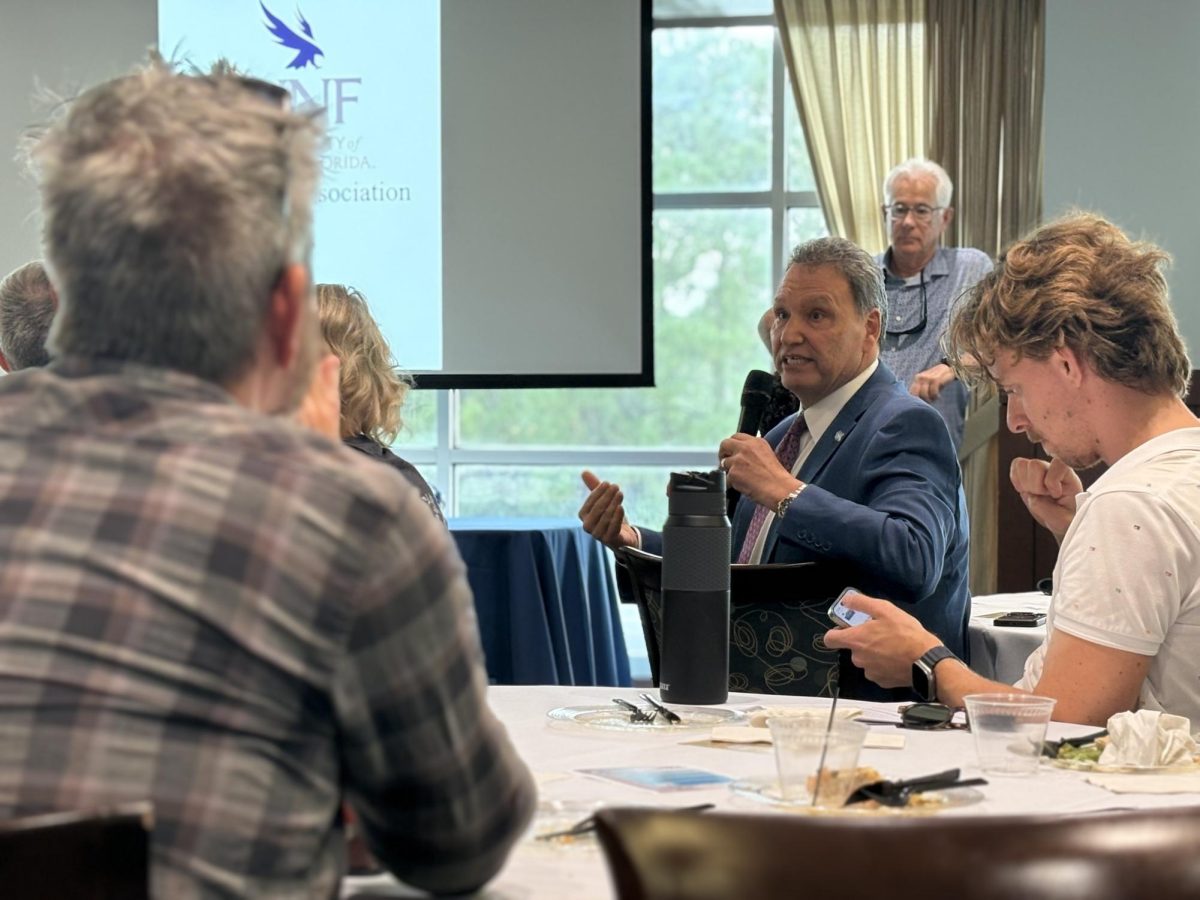The current economic turmoil has been difficult for Robert Farmer, a sophomore journalism major at Florida Community College of Jacksonville, who’s finding he must make sacrifices to continue
his education.
Unable to secure a private student loan due to a lack of credit history, Farmer has been forced to forfeit a favorite possession – his guitar – so he can pay for textbooks.
“It was one of the worst mornings I’ve had in a while,” Farmer said. “I paid $600 for [the guitar] and got $125 back at the pawn shop. I didn’t have time to use eBay. I couldn’t wait. I needed the money.”
But losing his guitar isn’t the only sacrifice Farmer has had to make. He’s also had to give up on his dream of a UNF degree, at least for now. When he found himself unable to afford UNF’s tuition, he had to transfer to the less-expensive FCCJ.
Like Farmer, many students are finding it’s becoming more and more difficult to obtain private loans to pay for college.
Barmak Nassirian, associate executive director of the American Association of College Registrars and Admissions Officers, said the college loan system is in crisis as lending institutions are less willing to give
out money.
But economists don’t expect banks’ reluctance to loan money to stick around.
“It’s not going to last too long,” said Dr. Paul Mason, chairman of UNF’s Department of Economics. “Banks make money by lending so they will be motivated to start lending again,including student loans.”
Private student loans acquired through banks, also called signature loans, are based a person’s credit rating. As most students are without a credit history, capturing private loans is difficult, said Jim Owen, director of One Stop.
Bank loans aren’t the only types of loans that are becoming scarcer. Owen reported the number of personal donations to the school for private scholarships has dwindled, so students may also have a tougher time securing this type of tuition help.
“The frequency of giving has slowed down,” he said.
In addition, the group of institutions offering education loans is decreasing.
Traditional lenders have been backing out of the student loan business, and One Stop has had to revise its list of trusty and willing banks twice in the past year, Owen said.
There are other places students can go for financial help.
By applying for the Free Application for Federal Student Aid, a student’s eligibility is determined for federal student financial aid. Some of the assistance offered includes Stafford loans, PLUS loans, and Pell grants. Despite students’ need for help with paying for college, many eligible students don’t apply for FAFSA.
“The big thing is [the students have] got to do the FAFSA,” Owen said.
The federal help can be substantial. The maximum Pell grant award was $4,310 last year. For the 2008-09 award year, the maximum for Pell awards has been increased to $4,731.
Owen encourages students to be sure not to let those federal funds go to waste, he said.
He also recommends students apply for FAFSA as soon as possible, shooting for the end of February, just to make sure there is time to deal with any extra procedures if necessary.
An additional difficulty posed for students already struggling to make ends meet is the tuition increase proposed by the state in November.
While the legislature is expected to pass the proposal, some say the increase will harm students.
“This move puts higher education even further out of reach,” Senate Democratic Leader Al Lawson said in a Florida Senate press release. “Dumping tuition hikes into the laps of students and their families is the wrong move at the wrong time.”
But some UNF professors think it might not be such a bad idea.
“Quite frankly, we’re hoping it does [pass],” Mason said. “A lot of schools will take up the slack in terms of grants and tuition rates.”
Owen agrees.
“That’s where we have to rely on institutional dollars to fill in the gaps,” Owen said.
Sometimes, however, those gaps are impossible to fill. Take the case of Jacksonville’s Miguel Emmanuelli. He was pursuing his degree at FCCJ until tuition costs forced him to drop out.
“Now is the time to work, not pay outrageous prices for school,” Emmanuelli said. “I’m working full-time at whatever recession-proof corporate sweatshop that will pay my way through school one day. I do want to graduate, it’s just not financially possible for me at this moment.”
E-mail Becca Grimm at news@unfspinnaker.com.












colegeloanconsultant | Apr 9, 2009 at 8:36 pm
Florida students have relied on institutional funding. If this decreases, state and federal aid will not be able to make up the gap. (particularly now, as the Department of Education was unable to hold an auction for ParentPLUS loans in the FFELP)
Florida Education